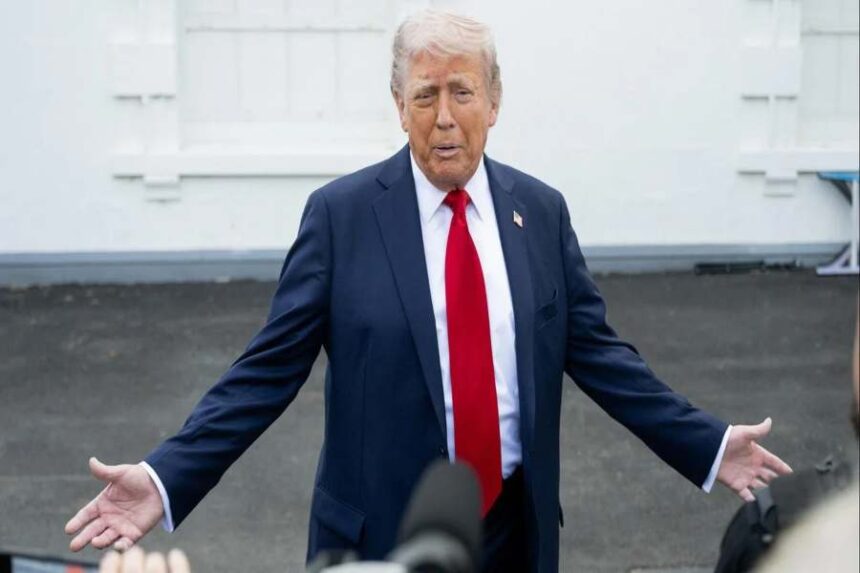In a significant reversal, the Trump administration announced on Friday it would reinstate the visa records of thousands of international students whose status had been abruptly terminated in a recent immigration crackdown. The decision was revealed during a federal court hearing in Washington, D.C., as the administration faces mounting legal pressure and criticism over its handling of student visa records.
A Justice Department attorney informed the court that more than 4,700 student visa records would be restored in the Student and Exchange Visitor Information System (SEVIS), a database managed by U.S. Immigration and Customs Enforcement (ICE) to track foreign students and exchange visitors. Attorney Brian Green, who represents a plaintiff in one of the dozens of lawsuits filed nationwide, confirmed the development.
Background: A Controversial Move on Student Visas
The mass termination of student records had sparked widespread fear among international students, many of whom worried they could face immediate deportation. The cancellations largely targeted students with minor legal infractions — some charges had even been dismissed — according to court filings.
Following the wave of terminations, dozens of lawsuits were filed against the Trump administration. Judges across the country, notably in federal courts, largely ruled in favor of students. Just last week, a federal judge in Atlanta ordered ICE to reinstate the SEVIS records of 133 students, adding momentum to the legal backlash.
The sudden mass cancellations had also drawn attention to the broader relationship between immigration enforcement and student mobility, raising concerns among educational institutions and legal experts about due process rights.
New Policy Approach: Temporary Reinstatement, Future Changes Ahead
According to a statement read in court by the Justice Department attorney, SEVIS records will now be maintained or reactivated for the affected students, and ICE will not alter records based solely on findings from criminal background checks that initially led to the cancellations.
However, ICE retains the authority to terminate student records for other reasons, including failure to maintain nonimmigrant status or engagement in unlawful activities that would render an individual removable under the Immigration and Nationality Act.
“ICE is developing a policy that will provide a framework for SEVIS record terminations,” the attorney said. “Until such a policy is issued, the SEVIS records for plaintiff(s) in this case (and other similarly situated plaintiffs) will remain active or shall be re-activated if not currently active.”
The Department of Homeland Security emphasized that the administration had not reversed any visa revocations, a distinction important to the government’s legal stance. “What we did is restore SEVIS access for people who had not had their visa revoked,” said DHS spokeswoman Tricia McLaughlin in a statement.
While ICE administers SEVIS, the Department of State controls visa issuance and revocation. CBS News reached out to State Department officials for clarification but had not received a detailed response by publication time.
Student Fallout: Deportations and Lingering Uncertainty
Despite Friday’s announcement, the damage for some students has already been done. Several foreign students chose to self-deport rather than risk legal uncertainty. Among them was a Cornell University student whose visa was revoked after participating in pro-Palestinian protests, highlighting broader concerns about free speech protections for foreign students.
The Trump administration’s immigration policies have consistently drawn controversy, particularly over efforts to tighten rules around international students. Friday’s reinstatement move appears to reflect not just legal necessity, but also a tactical retreat as courts across the country signaled that mass cancellations without individualized due process would not stand.
Why This Matters: Implications for Students and U.S. Universities
This reversal offers temporary relief to thousands of international students, many of whom contribute significantly to the U.S. economy and academic communities. However, uncertainty remains about what future SEVIS policies will entail and whether new restrictions could be introduced once ICE finalizes its forthcoming framework.
Universities, already strained by shifting immigration policies and pandemic-related enrollment declines, have warned that aggressive immigration enforcement targeting students could damage the United States’ reputation as a global education leader.
For now, students affected by the cancellations can remain in the U.S. legally, but they, along with their schools and legal advocates, are watching closely to see how the administration’s next moves will impact their futures.




